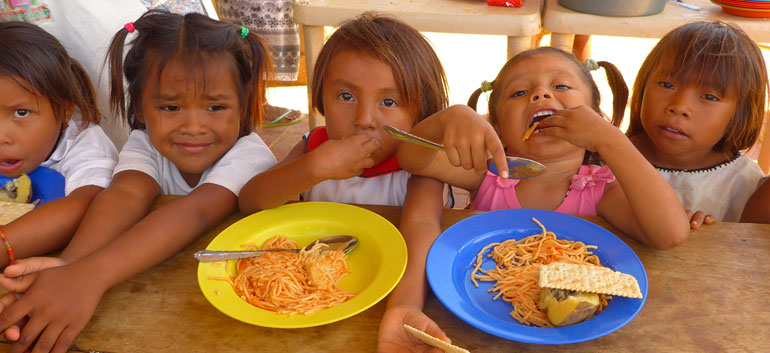Indigenous communities in the north of Colombia are calling for help after local authorities revealed that hunger has cost the lives of 276 children living in Colombia’s desolate La Guajira peninsula in the north in the past six years, local authorities said.
The majority of the children who died as a result of malnutrition are indigenous, a local Wayuu leader told Colombia Reports.
Colombia’s northern state of La Guajira, also bordering Venezuela, is home to one of the largest Colombian indigenous populations. It is also one of the most affected regions regarding food supply. This is due to factors such as lack of food and water, geography, access difficulties in the region and Venezuela’s recent restriction of movement of food to Colombia.
MORE: Indigenous communities in Colombia’s north experiencing a famine: Ombudsman
Radio station Caracol reported last week that 3,000 children from the Guajira state have died in the past 6 years. Of these child deaths, 276 were attributed to starvation.
MORE: 40% of indigenous people in Colombia suffer malnutrition
The director of Public Planning of Guajira, Cesar Arismendy, submitted a request to the Colombian State in March demanding the guarantee of children’s life and health in the affected area.
The protective writ claims the urgent presence of President Juan Manuel Santos and the ministers of Social Protection, Agriculture and Family Welfare.
Arismendy claims that the high rate of child mortality due to starvation is not exclusively caused by food shortage, but also by factors such as lack of water, no access to health care, the extreme poverty in which allegedly 99.3% of indigenous live and a lack of clear policies to curb the problems.
Local indigenous leader Maria Pana told Colombia Reports that the locals are extremely worried about their situation and that they have no opportunities in the region to help them overcome the difficulties.
Pana said that in previous years the indigenous used to cross the border and work in Venezuela, but that this has become impossible due to ongoing tensions and political violence in the neighboring country.
Additionally, said Pana, government programs that seek to combat malnutrition and hunger “don’t meet our needs. They offered rationed portions of food, but only to children younger than 5 years old. The families are numerous and every member of the family has to be fed. Besides, in order to get that portion of food, one has to go to their centers which are far and it is hard for a child to walk in the desert with temperatures between 104-110 degrees.”
The indigenous leader claimed that the government should create special programs for all family members. More importantly, they should provide jobs and opportunities for parents in order to help them support their families.
”We need help,” Pana said to CR adding that ”we fear that our tribe, the Wayuu, is in danger of extinction. The animals and fish have disappeared, there is no water and no material for handicraft. Therefore, indigenous people have no resources. We need opportunities to survive and make a living. ”
La Guajira
Sources
- Drama humanitario en La Guajira: En 6 años han muerto 278 niños por hambre (Caracol)
- Writ of protection (not available online)
- Interview with Maria Pana


